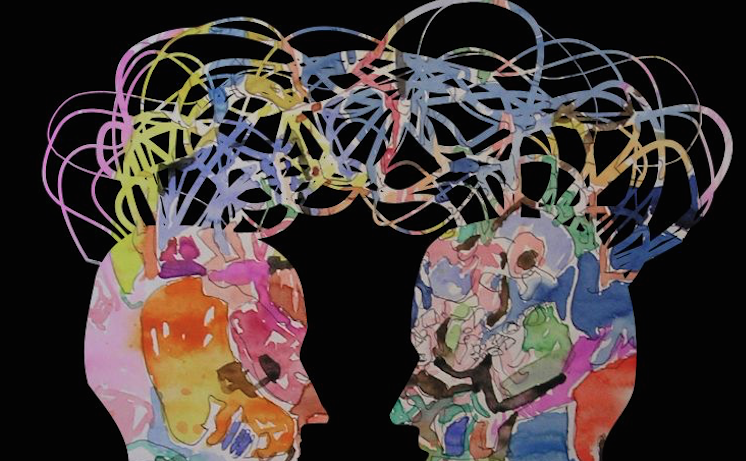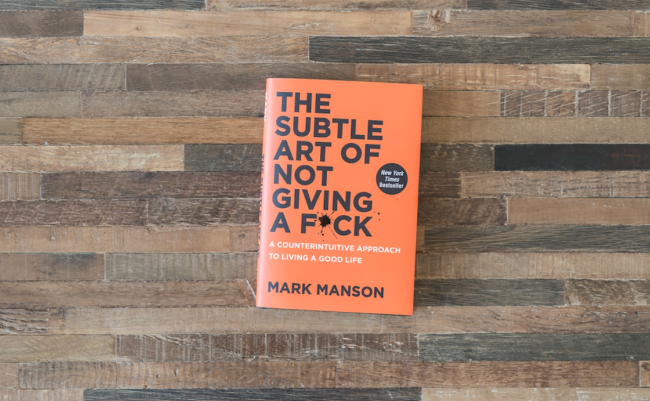
“I am invisible, understand, simply because people refuse to see me.”
By now you have probably seen the Netflix original film ‘Barry’, which tells the story of President Obama‘s early years as a college student in New York City. This was the crucial period in his life which solidified his identity as a bi-racial man in a changing America. Early signs of his “hope” and “change” messages that would mark his historical Presidential campaign in 2008 were evident as he struggles in the limbo of his relationship with a rich, young white woman, and friendship with a black man from the projects.
In the midst of these formative years, we get some insight into what helped him figure out his own place in the world, as a son of a Kenyan father, a white mother from Kentucky, being raised in Hawaii, and having lived in Indonesia for part of his younger years. It was a book called ‘Invisible Man’ by Keith Ellison which gave him the foundation for understanding his cultural foundation as a black man in America, and how his unique bi-racial identity would become the very thing that would inspire many others in the future who have wrestled with their “place” in this country.
“In the film, we see a Holden Caulfield-esque Obama (“I fit in nowhere,” he declares) at an existential crossroads, symbolically reading Ralph Ellison’s seminal “Invisible Man,” navigating an occasionally awkward interracial relationship and largely turned off by politics. He finds himself without a sense of purpose, thrust into a New York City that is teeming with multicultural tension and creativity,” writes Adam Howard at NBCnews.com.

In one pivotal scene, at his girlfriend’s sister’s wedding, Barry has a conversation with a bi-racial couple (the wife was Asian, the husband was black). Barry forlornly explains where he is from, expecting the usual reaction of shock and confusion at his less-than-binary upbringing. The black man looks him square in the eye and says without wavering, “you know what that makes you? American.”
It’s a line that rings true now more than ever before. As we look ahead to a new administration under Donald Trump, there is a growing sense of racial tension as we see an increase in hate crimes, and unrest between white and non-white populations. The ideological divisions are as wide and far flung as are the political spectrum today. It leaves many Americans wondering, whether gay, straight, Muslim, Christian, black, white, Asian, Latino, liberal, conservative and anything in between, what is their place in the US today, and how their identity is formed based on this.
The story takes place in the 1920’s, between the segregated South and Harlem into the 1930’s. Themes of opportunity and dignity are present throughout the book, as the protagonist, a black man, is given a college scholarship from a group of white men, who saw him win a boxing match blindfolded. While in New York, he is given a position of leadership in a prominent group, but before too long realized he was chosen for this only as a political pawn. The fact that this is a phenomenon that has been happening to marginalized people in America for a long time makes it a timeless book.

The truth is, many different groups feel “invisible” today, and what Ralph Ellison spoke about in his book.
“A masterwork, “Invisible Man” addresses many themes and innumerable concepts but among these were questions about individuality and African American identity, and how those clash with white supremacy, structural racism and political ignorance,” writes Melanie McFarland from Salon.com.
Clint Smith, author, PhD Candidate at Harvard University and teacher tells of a different, yet similar, way in which Ralph Ellison’s novel has become a lens in which another group has found voice in the current discord in America. At the time he was teaching in Maryland, and immigrants (both documented and undocumented) who make up his class were reading ‘Invisible Man’ in 2012 after the death of Trayvon Martin. This of course was the incident that prompted people all around the country to start filming the numerous incidents of police killing black men and women that would become the catalyst for the start of the Black Lives Matter movement.
“The school was situated inside the beltway of Prince George’s County, and my classroom was filled with almost exclusively black and brown students, many of them undocumented immigrants. While Ellison wrote of invisibility as a black man caught in the discord of early-twentieth-century racism, this particular group of students read the idea of invisibility not as a metaphor but as a necessity, a way of insuring one’s protection. I was expecting that the class would relate the novel to the current climate of violence toward black bodies. But, as they often did, my students presented a compelling case that broadened the scope of the discussion,” writes Clint in an essay for The New Yorker, where he describes the book as a “parable for our time”.

After reading the book in 2012, Clint says he immediately added it to his syllabus, knowing what a powerful impact it could have on his students. He is not the only person who has been greatly impacted by the novel. Audible CEO and founder Don Katz, who had the privilege of hearing the iconic author speak while he was teaching a course at NYU, said it was Ralph’s book which inspired him to recognize the power of the spoken word, and create the company which would become globally synonymous for allowing millions of people to listen to ‘Invisible Man’.
“Ralph Ellison taught me that Americans created a distinctive way of talking and telling stories which led to the distinctive voice in the way we wrote. The American experience is derived from the process of a nation constantly making and remaking itself, a place that needed to create its own myths and art and even its own sounds because we had to. He also conveyed that in a nation creating itself without kings, a new order was created based on the color of people’s skin,” he said.
Because of this, Audible are making the audiobooks version available for free until the end of the year, or you can download it for free when you sign up for a 30-day trial. Narrated by Joe Morton, we recommend ‘Invisible Man’ for every person, especially those who are gearing up to be part of the collective resistance as we head into a new era of politics and identity in America in 2017.
You can hear a snippet of Ralph Ellison’s ‘Invisible Man’ narrated by Joe Morton below:
This is a sponsored conversation written by us on behalf of Audible. The opinions and text are all ours.
















